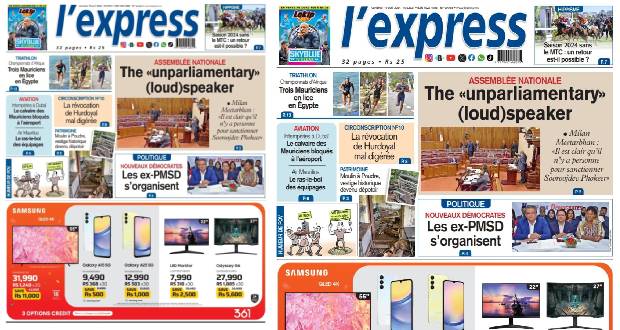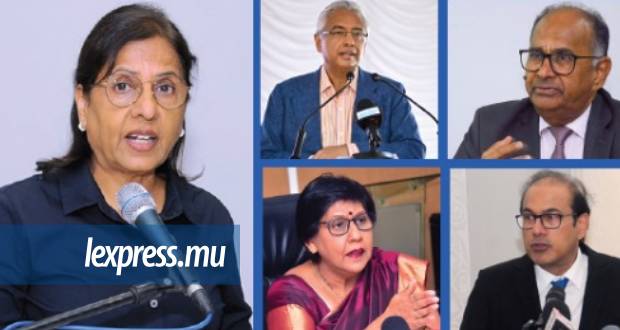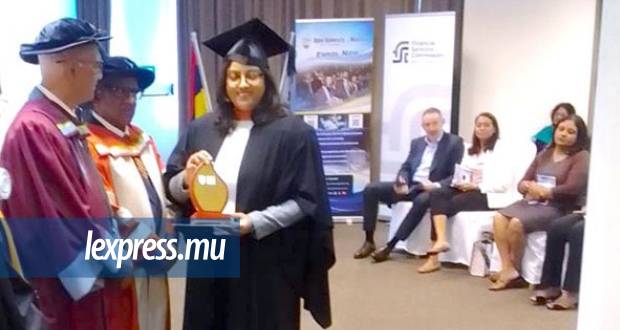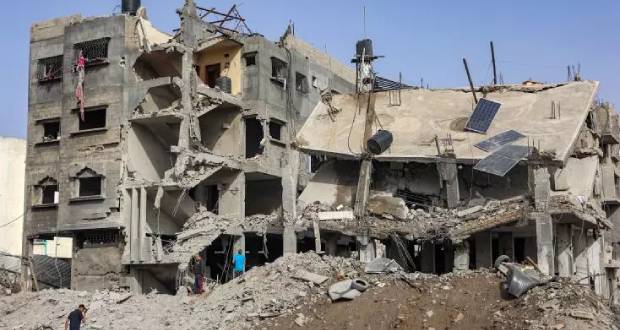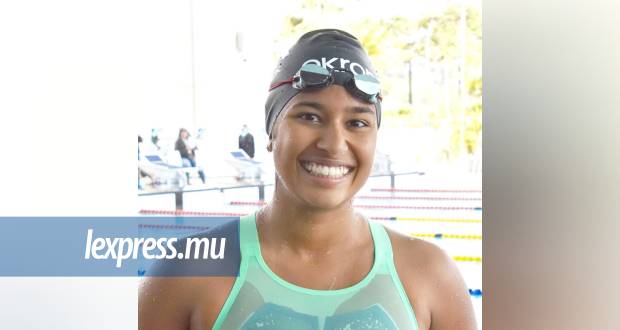Publicité
Paul Bérenger and the health services
Par
Partager cet article
Paul Bérenger and the health services

On one of those weekdays in the late 1970s, soon after the general elections of 1976, while I was on duty in the Accident and Emergency Unit at The Civil Hospital, Port- Louis, I was called to attend to a patient with multiple injuries, mostly on the face. Our patient, a sturdy fellow, was accompanied by two equally well-built persons. I gathered from them that there was deep trouble in the seaport among the syndicate leaders, partisans of the Mouvement Militant Mauricien, supporters of the Labour Party government and activists of the Parti Mauricien Social Démocrate. He was aggressed during the scuffle. I was also made aware that in the hospital premises some cars, full of fiery characters, were waiting for the patient.
I understood that I was in a very delicate situation and that any slight delay in attending to the latter and/ or giving treatment other than what was expected of me would instantly spark off disturbance in the casualty unit. Extra medical help was not at hand, I was the only practitioner on site.
While the patient was still under care, the attendant casually told me: “Mr Berenger deor”. Immediately, I walked towards Hon. Bérenger, who was standing in the waiting hall and appeared to be keeping a stern eye around him. After greeting him, I invited him to take a seat in my office with the following words: “Donnez-vous la peine Monsieur, je vous cède mon bureau.”
To which he replied: “Non Madame, merci, faites votre travail.” I repeated my invitation and stressed that my office was at his disposal I got the same reply, so I carried on as usual. Mr Bérenger patiently waited outside for the treatment to be over and he left with the injured man and the others soon afterwards.
Whatever be the political ideology of Hon. Bérenger, the presence of the charismatic leader of the MMM does not go unnoticed and, accordingly, he should be given due respect in a dignified manner. I thought that by getting Hon. Bérenger to wait in the office, it would also avoid him contact with certain persons, staff included, who would surely seize the opportunity to “ rod enn bout, dres papye”. Worse, to voice out their own political views in an aggressive tone, much to the embarrassment of the politician and the host.
Later, I realised that by staying with the crowd in the hall, Hon. Bérenger was actually putting in evidence his respect for an essential service where people come for relief of their suffering and he was passing on the code of good conduct, whilst ensuring the protection of the health care providers, in particular of the medical officer on duty.
Very often, specially during tense political situations, the health services become the ideal target of certain politicians and their followers. Some would, at any time, day or night, show their might and demand that we immediately leave all our commitments and trail behind them or show their muscle power with “ Desann lopital, kraz partou” or call on their political administrative connections if the practitioner does not bend to their diktats:
“Dir dokter la li pa kone ki mo ete, taler mo transfer li” or show their erroneous skills in the belief that they are more knowledgeable on medical issues than the one who after years of study has earned due qualifications: “ Ki dokter la kone, bizin fer koumsa, apel spesialis la...” All comments at times spiced with a downgrading casteist attitude.
But, with Hon. Bérenger, I was only advised to go on with my work. There was never any questioning nor threats nor any other difficulties, everything went on smoothly. The appreciation of the presence of the leader of the MMM party on that day is greater because the medical officer who was on duty is the daughter of an ex-minister of the Labour Party government, Mr Lallah Ramsoondur Modun, a close “colistier” of the then Prime Minister Dr SS Ramgoolam, a man politically involved with human rights issues for the downtrodden and who maintained close ties with Sir Charles Gaëtan Duval, the leader of the PMSD. The latter was himself the staunch opponent of the MMM. My late father was junior Minister in the Ministry of Local Government with Sir Jean Ah Chuen of the PMSD. No secret of my political appartenance, nor of the patient’s rights for appropriate care.
The absence of the responsible officers of the hospital while Mr Bérenger was in the waiting hall intrigued me. Usually, the minute a politician of the ruling party appears in the vicinity, all would leave their office and flock around him. Neither, against the established practice, was a report on the case requested from me. It turned out that for fear of being branded as MMM supporters and face possible sanctions, all stayed away and preferred to ignore all: ‘‘ Les Modun debrouy sa !’’ Hon. P. R. Bérenger, my family and I stand united to pray for you and to wish you the best of health.
Publicité
Les plus récents
